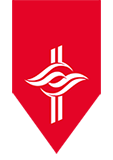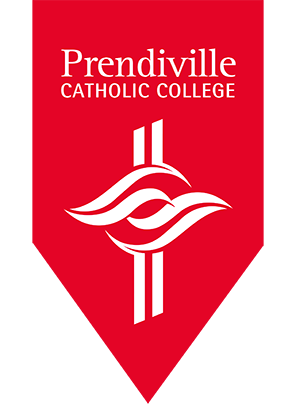- Home »
- Curriculum »
- Year 11 »
- Creative Living »
Creative Living

Creative Living
Year 11
Open the panels below for further details.
Children, Family & the Community (General)
This course caters for students who are TAFE or employment bound and particularly those who are considering careers working with children. Career pathways include areas such as education, nursing, community services, childcare and health.
The course focuses on factors that influence human development and the well being of individuals, families and communities. Students develop an understanding of the social, cultural, environmental, economic, political and technological factors which have an impact on the ability of individuals and families and groups in society contributes to the creation of safe, cohesive and sustainable communities. Through the study of developmental theories, students develop an understanding of human growth and the domains of development. Students investigate access to, and availability of, support services and review laws and regulations that govern the provision of such support.
Students explore products, services or systems that address issues, opportunities or challenges to meet the needs of individuals, families and communities. They use a range of skills to make informed decisions and communicate and interact with children, families and community groups.
Course Outcomes
- Exploring human development
- Applying the technology process
- Self-management and interpersonal skills
- Society and support systems
Unit 1: Families and Relationships
This unit focuses on family uniqueness. Students examine the role of families and the relationships between individuals, families and their communities. Through an understanding of growth and development, students recognise the characteristics of individuals and families and that development is affected by biological and environmental influences. They identify roles and responsibilities of families, and examine their similarities and differences, the issues that arise from family interactions and the influence of attitudes, beliefs and values on the allocation of resources to meet needs and wants.
Students make decisions, and develop skills to accommodate actions that impact on themselves and others. They also design and produce products and services that meet the needs of individuals, families and communities.
Unit 2: Our Community
This unit focuses on families, relationships and living in communities. The influence of biological and environmental factors, lifestyle behaviours and health status on growth and development is studied. Students explore the health of individuals and communities and the protective and preventative strategies that impact on growth and development.
Students examine the roles and responsibilities of particular groups, networks, and services, and the impact of attitudes, beliefs and values on the management of resources. Students engage in shared research practice, communicate information, use decision-making, goal setting, self-management and cooperation skills when creating products, services or systems that will assist individuals, families and communities to achieve their needs and wants.
Assessment Types
- Investigation
- Production
- Response
Learning experiences in this subject may include but are not limited to:
- virtual baby program
- excursions to Mercy Hospital and a children’s production cooking task
- guest speakers including expectant mother, parents with baby/child, families and various community services that support families, for example CARERSWA, Community Midwifery WA, Disability Services, Nursing Mothers Association
- investigation into societal issues and trends that impact on individuals and families
- production of Information kit and product to meet the changing needs of individuals and family groups
- practical activities including trialling and producing nutritionally healthy recipes with preschool age children, family care package production for single mothers in need, excursion to Mercy Hospital and the Natural Birthing ward, guest speakers and other learning experiences with children.
Prerequisite: Nil
Pathway: Units 1 and 2 lead to Units 3 and 4 in the Year 12 course.
Food Science and Technology (General)
In the Food Science and Technology General course, students develop their interests and skills through the design, production and management of practical food-related tasks.
Students explore innovations in science and technology and changing consumer demands. Creating recipes, tasting new and emerging foods and designing, developing and marketing a range of products, services and systems
Food impacts every aspect of daily life and is essential for maintaining overall health and wellbeing. The application of science and technology plays an important role in understanding how the properties of food are used to meet the needs of consumers and producers. Food laws and regulations govern the production, supply and distribution of safe foods. Students develop practical food-related skills, understandings and attitudes that enhance their problem-solving abilities and decision-making skills.
Syllabus: The Year 11 syllabus is divided into two units, each of one semester duration, which are typically delivered as a pair. The notional time for each unit is 55 class contact hours.
Unit 1 – Food Choices and Health
This unit focuses on the sensory and physical properties of food that affect the consumption of raw and processed foods. Students investigate balanced diets, the function of nutrients in the body and apply nutrition concepts that promote healthy eating. They study health and environmental issues that arise from lifestyle choices and investigate factors which influence the purchase of locally produced commodities.
Students devise food products, interpret and adapt recipes to prepare healthy meals and snacks that meet individual needs. They demonstrate a variety of mise-en-place and precision cutting skills, and processing techniques to ensure that safe food handling practices prevent food contamination. Students recognise the importance of using appropriate equipment, accurate measurement and work individually, and in teams, to generate food products and systems.
Unit 2 – Food for Communities
This unit focuses on the supply of staple foods and the factors that influence adolescent food choices and ethical considerations. Students recognise factors, including processing systems, that affect the sensory and physical properties of staple foods.
They explore food sources and the role of macronutrients and water for health, and nutrition-related health conditions, such as coeliac and lactose intolerance, which often require specialised diets. Students consider how food and beverage labelling and packaging requirements protect consumers and ensure food supply is safe.
Students work with a range of staple foods, adapt basic recipes and apply the technology process to investigate, devise, and produce food products to achieve specific dietary requirements. They evaluate food products and demonstrate a variety of safe workplace procedures, processing techniques and food handling practices.
Assessments:
Investigation: 30%
Production: 60%
Response: 10%
Prerequisites: There are no prerequisites however previous success in the Year 10 Hospitality course is advantageous.
Pathway: The Food Science and Technology General course progresses to the Year 12 course by the same name and enables students to connect with further education, training and employment pathways and enhances employability and career opportunities in areas that include nutrition, health, food and beverage manufacturing, food processing, community services, hospitality, and retail.
Hospitality (Certificate II)
This course offers budding ‘Master Chefs’ the ultimate opportunity to develop their interests in food preparation. It also provides a pathway to working in a restaurant, café, club, hotel or food outlet.
The course is both practical and theory based with an emphasis on working effectively with others, food hygiene and safety and preparation of simple dishes. Course participants will engage in a range of hospitality work activities and work under supervisions to complete tasks.
Students have the opportunity to obtain a Certificate II over Year 11 and 12. This is an excellent qualification to assist entry into a career in Hospitality or Food Production. Units covered over the two years will be chosen from the list below.
BSBWOR203AB – Work effectively with others
SITHIND202 – Use hospitality skills effectively
SITXCCS202 – Interact with customers
SITXWHS101 – Participate in safe work practices
SITXCOM201 – Show social and cultural sensitivity
SITHIND201 – Source and use information on the hospitality industry
SITXFSA101 – Use hygienic practices for food safety
SITHCCC103 – Prepare sandwiches
BSBITU201A – Produce simple word processed documents
SITHFAB203 – Prepare and serve non-alcoholic beverages
SITHFAB204 – Prepare and serve espresso coffee
SIXCCS101 – Provide information and assistance
Course Fee: A student choosing to complete this qualification at Prendiville Catholic College will be charged a subject levy which absorbs the delivery costs of completing the qualification from the RTO (Registered Training Organisation). An approximate levy of $300 per student will be incurred.
Auspicing: Our College has an auspicing arrangement with Hospitality Group Training for this qualification, so students will be enrolled with this RTO.
Prerequisite: Nil
Pathway: This course continues in Year 12 for the completion of the Certificate II in Hospitality.


